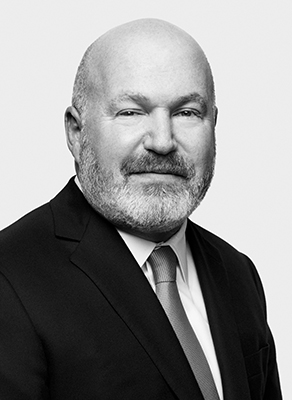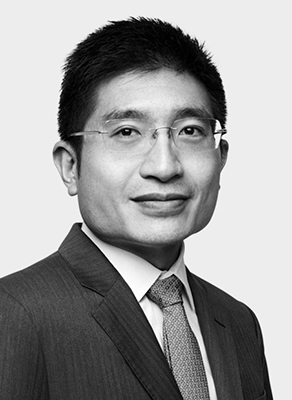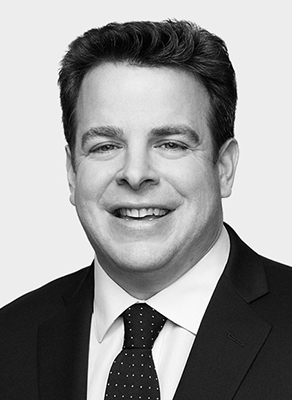AQR Managed Futures Strategy HV Fund
Quick Links
- daily nav $9.25
- change $0.05
- daily return 0.54%
- inception date 7/16/2013
- AUM $232MM
Investment Objective
An Alternative Approach for Building Better Portfolios
As part of a strategic asset allocation, Managed Futures has the potential to improve the long-term return and risk characteristics of a traditional portfolio, with the potential to perform when markets go from good to great, or bad to worse.
Investment Approach
We invest in liquid futures contracts, futures-related instruments, forwards and swaps, both long and short, across global equities, fixed income, currencies and commodities. Trades are executed based on trend-following signals that aim to go long rising markets and short falling markets.
By establishing “long” positions in assets with favorable trends, and “short” positions for assets with bearish trends, this Fund seeks to benefit from both up and down movements in prices.
What distinguishes AQR’s approach to managed-futures investing is our emphasis on diversification across several themes:
- Signal Types — utilizes short- and long-term signals using both price and fundamental data
- Investments — trades over 500 markets across four major asset classes. This includes traditional, and more unique, alternative markets
- Risk — position sizes based on risk, allocating more capital to less-risky instruments
AQR’s proprietary trading algorithms and direct market access enable us to minimize transaction costs — another key differentiator for investors.
Why Invest in the AQR Managed Futures Strategy HV Fund?
A Diversifying Source of Returns
Opportunity to Perform in Bull and Bear Markets
Potential to Manage Downside Risk
Asset Class Exposure
As of March 31, 2024
| % of Risk Allocation | |
|---|---|
| Fixed Income | 26.74% |
| Commodities | 25.61% |
| Equities | 25.18% |
| Currencies | 22.47% |
Top Active Positions by Asset Class
As of March 31, 2024
| Commodities | % of Risk Allocation |
|---|---|
| Soybean Future | 3.25% |
| Mini Natural Gas Future | 3.11% |
| HG Copper Future | 2.38% |
| Total Commodities | 8.73% |
| Currencies | % of Risk Allocation |
|---|---|
| NZD vs USD | 3.96% |
| EUR vs USD | 3.10% |
| PLN vs USD | 2.56% |
| Total Currencies | 9.61% |
| Equities | % of Risk Allocation |
|---|---|
| FTSE China A50 Index Future | 1.47% |
| KOSPI 200 Index Future | 1.06% |
| MSCI Emerging Index Future | 0.99% |
| Total Equities | 3.52% |
| Fixed Income | % of Risk Allocation |
|---|---|
| Eurodollar Future | 1.41% |
| U.S. 20 Yr Treasury Note Future | 0.94% |
| US 2 Yr Interest Rate Swap | 0.84% |
| Total Fixed Income | 3.19% |
| Total | 25.06% |
|---|
Portfolio Statistics
As of March 31, 2024
| Realized Beta Since Inception to S&P 500 | -0.12 |
|---|---|
| Realized Beta Since Inception to BarCap Agg | 0.38 |
| Realized Since Inception Volatility | 15.17% |
| Realized Since Inception Sharpe Ratio | 0.21 |
Risk allocation is calculated as the relative weight of the expected volatilities for each asset class or strategy, with a sum equal to 100%. AQR calculates expected volatilities for each strategy using proprietary risk models to predict volatilities and correlations across all assets in the portfolio.
All Fund Statistics are subject to change. Portfolio holdings are subject to change and should not be considered a recommendation to buy or sell securities. Please see disclosure section for a glossary of industry terms.
AQR Managed Futures Strategy HV Fund: The use of derivatives, forward and futures contracts, and commodities exposes the Fund to additional risks including increased volatility, lack of liquidity, and possible losses greater than the Fund's initial investment as well as increased transaction costs. Concentration generally will lead to greater price volatility. This Fund takes short positions in derivative instruments. A short position in a derivative instrument involves the risk of a theoretically unlimited increase in the value of the underlying instrument, which could cause the Fund to suffer a (potentially unlimited) loss.
Annualized Total Returns
As of March 29, 2024
| MTD | YTD | 1YR | 3YR | 5YR | 10YR | Since Inception 7/16/2013 | Gross Expense Ratio | Net Expense Ratio* | |
|---|---|---|---|---|---|---|---|---|---|
| AQR Managed Futures Strategy HV Fund | 5.37% | 17.12% | 25.95% | 17.84% | 11.38% | 5.05% | 4.52% | 1.89% | 1.68% |
| ICE BofA US 3M T-Bill Index | 0.45% | 1.29% | 5.24% | 2.58% | 2.02% | 1.38% | 1.29% |
| AQR Managed Futures Strategy HV Fund | ICE BofA US 3M T-Bill Index | |
|---|---|---|
| MTD | 5.37% | 0.45% |
| YTD | 17.12% | 1.29% |
| 1YR | 25.95% | 5.24% |
| 3YR | 17.84% | 2.58% |
| 5YR | 11.38% | 2.02% |
| 10YR | 5.05% | 1.38% |
| Since Inception 7/16/2013 | 4.52% | 1.29% |
| Gross Expense Ratio | 1.89% | |
| Net Expense Ratio* | 1.68% |
As of March 29, 2024
| QTD | YTD | 1YR | 3YR | 5YR | 10YR | Since Inception 7/16/2013 | Gross Expense Ratio | Net Expense Ratio* | |
|---|---|---|---|---|---|---|---|---|---|
| AQR Managed Futures Strategy HV Fund | 17.12% | 17.12% | 25.95% | 17.84% | 11.38% | 5.05% | 4.52% | 1.89% | 1.68% |
| ICE BofA US 3M T-Bill Index | 1.29% | 1.29% | 5.24% | 2.58% | 2.02% | 1.38% | 1.29% |
| AQR Managed Futures Strategy HV Fund | ICE BofA US 3M T-Bill Index | |
|---|---|---|
| QTD | 17.12% | 1.29% |
| YTD | 17.12% | 1.29% |
| 1YR | 25.95% | 5.24% |
| 3YR | 17.84% | 2.58% |
| 5YR | 11.38% | 2.02% |
| 10YR | 5.05% | 1.38% |
| Since Inception 7/16/2013 | 4.52% | 1.29% |
| Gross Expense Ratio | 1.89% | |
| Net Expense Ratio* | 1.68% |
The Adviser has contractually agreed to reimburse operating expenses of the Fund at least through April 30, 2024. The Expense Limitation Agreement may be terminated with the consent of the Board of Trustees.
Performance data quoted represent past performance. Past performance does not guarantee future results and current performance may be lower or higher than the data quoted. All returns shown are total returns that assume reinvestment of dividends and capital gains. Returns for periods under a year are cumulative, all others are average annual returns. Investment returns and principal will fluctuate with market and economic conditions and you may have a gain or loss when you sell shares. From time to time the Fund’s advisor may waive fees or reimbursed expenses, without which performance would have been lower. Please call 866-290-2688 for most recent month-end performance.
ICE Bank of America Merrill Lynch 3 Month T-Bill Index: An index that tracks the performance of the U.S. dollar denominated U.S. Treasury Bills publicly issued in the U.S. domestic market with a remaining term to final maturity of less than 3 months. Indexes are unmanaged and one cannot invest directly in an index.
AQR Managed Futures Strategy HV Fund: The use of derivatives, forward and futures contracts, and commodities exposes the Fund to additional risks including increased volatility, lack of liquidity, and possible losses greater than the Fund's initial investment as well as increased transaction costs. Concentration generally will lead to greater price volatility. This Fund takes short positions in derivative instruments. A short position in a derivative instrument involves the risk of a theoretically unlimited increase in the value of the underlying instrument, which could cause the Fund to suffer a (potentially unlimited) loss.

Cliff Asness
Managing & Founding Principal
- 32 years of experience
- 26 years at AQR
Ph.D., M.B.A., University of Chicago
B.S., B.S., University of Pennsylvania

John M. Liew
Founding Principal
- 31 years of experience
- 26 years at AQR
Ph.D., M.B.A., University of Chicago
B.A., University of Chicago

Yao Hua Ooi
Principal
- 19 years of experience
- 19 years at AQR
B.S., B.S., University of Pennsylvania

Jordan Brooks
Principal
- 15 years of experience
- 15 years at AQR
Ph.D., M.A., New York University
B.A., Boston College

Erik Stamelos
- 20 years of experience
- 9 years at AQR
A.B., Harvard University
Investment Minimums
| Individual Investors | $5 Million |
|---|---|
| Institutional Investors | None |
| Accounts Offered by Financial Advisors | None |
Shareholder Fees
| Sales Load | None |
|---|---|
| Deferred Sales Load | None |
| Redemption Fees | None |
Annual Fund Operating Expenses
| Management Fee | 1.45% |
|---|---|
| Distribution (12b-1) Fee | None |
| Other Expenses | |
| Dividends On Short Sales and/or Interest Expense | 0.01% |
| All Other Expenses | 0.41% |
| Acquired Fund Fees | 0.02% |
| Gross Expenses | 1.89% |
| Less: Expense Reimbursements | 0.21% |
| Net Expenses* | 1.68% |
AQR Managed Futures Strategy HV Fund: The use of derivatives, forward and futures contracts, and commodities exposes the Fund to additional risks including increased volatility, lack of liquidity, and possible losses greater than the Fund's initial investment as well as increased transaction costs. Concentration generally will lead to greater price volatility. This Fund takes short positions in derivative instruments. A short position in a derivative instrument involves the risk of a theoretically unlimited increase in the value of the underlying instrument, which could cause the Fund to suffer a (potentially unlimited) loss.
| Adjusted Expense Ratio** | 1.67% |
|---|
**Reflects the Net Expense Ratio adjusted for certain investment related expenses, such as interest expense from borrowing and repurchase agreements and dividend expenses from investments on short sales, incurred directly by the Fund, none of which are paid to the Advisor.
An investment in any of the AQR Funds involves risk, including loss of principal. The value of the Funds’ portfolio holdings may fluctuate in response to events specific to the companies in which the Fund invests, as well as economic, political or social events in the United States or abroad. Please refer to the prospectus for complete information regarding all risks associated with the Funds. An investor considering the Funds should be able to tolerate potentially wide price fluctuations. The Funds are subject to high portfolio turnover risk as a result of frequent trading, and thus, will incur a higher level of brokerage fees and commissions, and cause a higher level of tax liability to shareholders in the Funds. The Funds may attempt to increase its income or total return through the use of securities lending, and they may be subject to the possibility of additional loss as a result of this investment technique.
Information about how each Fund voted proxies relating to portfolio securities held during the most recent 12-month period ended June 30 will be available no later than August 31. Please click here to view the most recent Form N-PX for the AQR Funds.
The Adviser expects that the Fund’s targeted annualized forecasted volatility will typically range between 7% and 20%; however, the actual or realized volatility level for longer or shorter periods may be materially higher or lower depending on market conditions. Higher volatility generally indicates higher risk. Actual or realized volatility can and will differ from the forecasted or target Volatility described above.
PRINCIPAL RISKS:
The use of derivatives, forward and futures contracts, and commodities exposes the Fund to additional risks including increased volatility, lack of liquidity, and possible losses greater than the Fund’s initial investment as well as increased transaction costs. Concentration generally will lead to greater price volatility. This Fund takes short positions in derivative instruments. A short position in a derivative instrument involves the risk of a theoretically unlimited increase in the value of the underlying instrument, which could cause the Fund to suffer a (potentially unlimited) loss. Risk allocation and attribution are based on estimated data, and may be subject to change. Diversification does not eliminate risk. An investor considering the Funds should be able to tolerate potentially wide price fluctuations. The funds are subject to high portfolio turnover risk as a result of frequent trading, and thus, will incur a higher level of brokerage fees and commissions, which may reduce performance and may cause a higher level of tax liability to shareholders in the funds.
Definitions:
Realized Beta of Fund to Index: A measure of the amount the fund has tended to move given a move in the specified Index, using three-day overlapping returns. A beta of 1 indicates that if the index has moved 10% over a three-day period, the fund has tended to move, on average, 10% over the same period. A beta of more than 1 indicates the fund has tended to move, on average, more than 10% in that case, and a beta of less than one indicates the fund has tended to move less than 10% in that case. Realized Sharpe Ratio: a ratio which measures risk-adjusted performance. Realized Volatility: the standard deviation of the compounded returns of a financial instrument within a specific time horizon.
Investors should carefully consider the investment objectives, risks, charges and expenses of the Funds before investing. To obtain a prospectus or summary prospectus containing this and other important information, please call 1-866-290-2688 or click here to view or download a prospectus online. Read the prospectus carefully before you invest.
© AQR Funds are distributed by ALPS Distributors, Inc. AQR Capital Management, LLC is the Investment Manager of the Funds and a federally registered investment adviser. ALPS Distributors is not affiliated with AQR Capital Management.
Investors should carefully consider the investment objectives, risks, charges and expenses of the Funds before investing. To obtain a prospectus or summary prospectus containing this and other important information, please call 1-866-290-2688 or click here to view or download a prospectus online. Read the prospectus carefully before you invest.
View definitions of benchmarks and other terms used here.
Diversification does not eliminate risk. Indexes are unmanaged and one cannot invest directly in an index.
Prior to October 18, 2021 the AQR Macro Opportunities Fund was known as the AQR Global Macro Fund.
The information provided herein (including any separate documents that may be accessed through this website) is not directed at any investor or category of investors and is provided solely as general information about our products and services and to otherwise provide general investment education. No information contained herein should be regarded as a suggestion to engage in or refrain from any investment-related course of action as none of AQR Capital Management, LLC (“AQR Capital”) nor any of its affiliates is undertaking to provide investment advice, act as an adviser to any plan or entity subject to the Employee Retirement Income Security Act of 1974, as amended, individual retirement account or individual retirement annuity, or give advice in a fiduciary capacity with respect to the materials presented herein. If you are an individual retirement investor, contact your financial advisor or other fiduciary unrelated to AQR about whether any given investment idea, strategy, product or service described herein may be appropriate for your circumstances.
There are risks involved with investing including the possible loss of principal.
Past performance does not guarantee future results.
©2023 AQR Funds. All rights reserved.